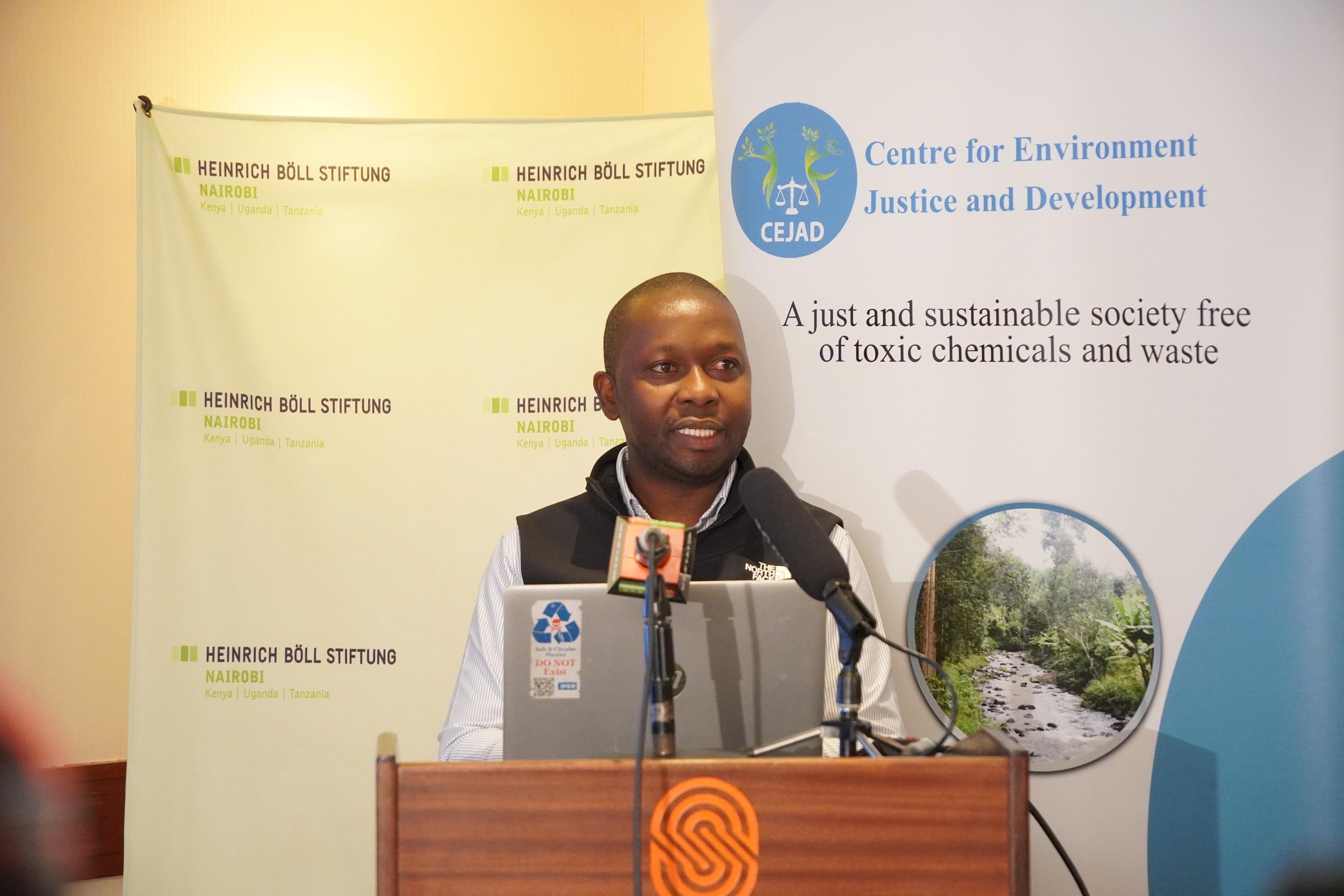

Civil Society Organisations(CSOs) have called on African countries to reduce plastic production and eliminate hazardous chemicals in plastics.
The lobbies include the Centre for Environment Justice and Development (CEJAD) and Heinrich Böll Foundation Nairobi.
CEJAD Executive Director Griffins Ochieng stressed the urgency of African solidarity in the negotiations on the Global Plastics Treaty in Busan, Korea.
Ochieng was speaking on Tuesday during a media event ahead of the Fifth Intergovernmental Negotiating Committee (INC-5).
“African countries, as net importers, bear the brunt of plastic pollution. Past negotiations have seen petrochemical companies dominate discussions, sidelining the voices of high-ambition countries," Ochieng said.
"It’s time for African leaders to demand a treaty that eliminates hazardous chemicals, ensures transparency, and establishes mechanisms for labeling, tracking, monitoring, and data-sharing,” he said.
According to CEJAD global plastic production has more than doubled in the past 15 years, with annual output reaching 400 million tonnes.
While, less than 10 per cent of plastics are recycled, leaving the majority to harm ecosystems, biodiversity, and communities. The issue extends beyond environmental harm, creating a global crisis affecting climate, health, and social justice.
The CSOs highlighted the need for a legally binding treaty with definitive language that imposes mandatory obligations on all Parties.
“An approach based on national rules would render the treaty ineffective. A global legally binding mechanism will ensure a level playing field and meaningful action to reduce plastic production,” Ochieng added.
The organisations also raised concerns about the plight of waste pickers, particularly women, who represent 40-50 per cent of the informal workforce in Kenyan urban centers like Nairobi, Kisumu, and Mombasa.
Despite their significant contributions to recycling, these workers often face unsafe conditions and economic exploitation.
Joyce Wangari, a representative of the Nairobi Recyclable Waste Association, urged leaders to prioritise a just transition.
“African leaders must ensure the treaty includes provisions for safe, dignified, and regulated employment, skill development, fair wages, and social protections for waste pickers,” Wangari stated.
A sustainable financing mechanism for the treaty’s implementation was another key focus.
According to the Programme Officer at CEJAD Dorothy Otieno, existing funding sources are insufficient.
She emphasised the need for multilateral funding, which will be supported by the polluting countries and guided by the polluter-pays principle.
“The future treaty must mobilize adequate funding to support a just transition and enable developing countries to meet its obligations,” Otieno stated.
Kenya, a vocal advocate for a high-ambition treaty, has championed measures addressing the entire lifecycle of plastics, from production to disposal.
In March 2022, the United Nations Environment Assembly (UNEA) passed a resolution to establish the INC to negotiate a legally binding instrument to end plastic pollution, including marine pollution.
The upcoming meeting in Busan, Korea, of the INC-5 is the fifth and final meeting and is pivotal as it aims to finalize the treaty by the end of 2024.
The meeting is scheduled for November 25 to December 1, 2024.
African leaders have a pivotal opportunity to amplify their collective voice and demand decisive global action.
“This is a critical moment for Kenya and Africa to listen to their civil societies,” Communication Programme Coordinator at Heinrich Böll Foundation Faiba Kombo said.
“We must champion a treaty that tackles the plastics crisis and safeguards our health, environment, and future generations.”
As the world gathers in Busan, African solidarity could be the key to securing a transformative and enforceable global treaty on plastics.
Also in attendance was the National Focal Point to the INC
Process Ayub Macharia and Programme Coordinator, Sustainable Development, HBF, Fredrick Njau.
Members of the Technical Working Group to End Plastic Pollution and representatives from Kenya National Waste Pickers Welfare Association were also present.


 © The Star 2024. All rights reserved
© The Star 2024. All rights reserved